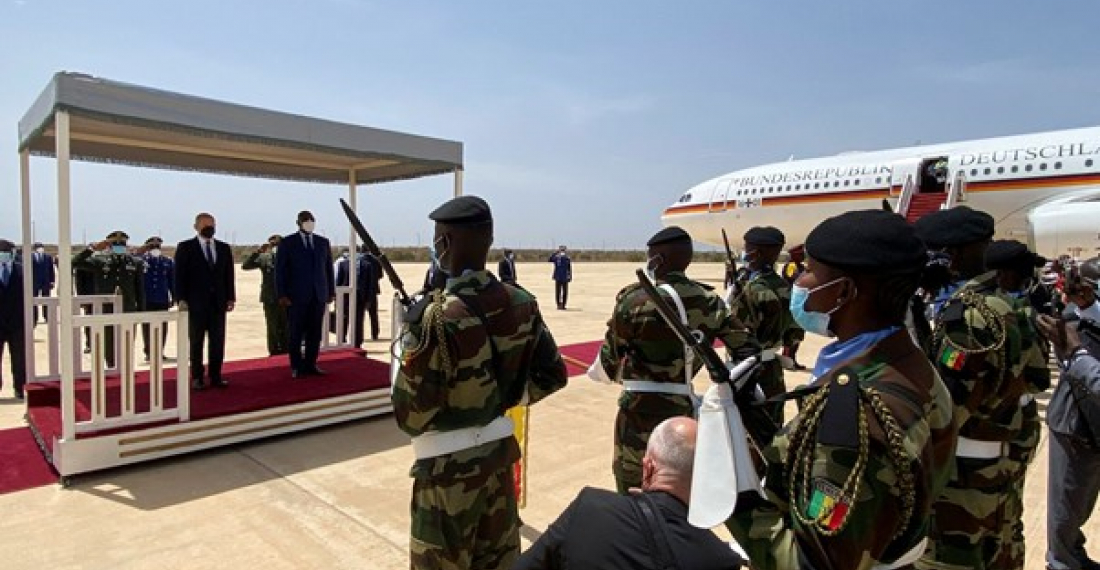On Sunday, German Chancellor Olaf Scholz, arrived in Dakar, Senegal at the start of a three day African tour. Top of the agenda in Scholz’ meeting with Senegalese President Macky Sall was Germany’s desire to explore the West African country’s vast gas reserves.
In a joint news conference by the two leaders, Scholz stated that gas exploration was a “matter worth pursuing intensively”. Senegal is believed to have significant natural gas deposits along its northern border with Mauritania.
In his first excursion to Africa since assuming office, Scholz is additionally aiming to consolidate support for Western sanctions against Russia, whilst finding alternatives to his country’s Kremlin-reliant energy mix. Moreover, his government is due to host the G7 summit in late June.
Two out of the three countries that Scholz is visiting, namely Senegal and South Africa, have been invited to attend the G7 Summit being held in Bavaria. In what was deemed a decisive UN General Assembly vote on a resolution condemning Russia’s invasion of Ukraine, both countries decided to abstain. Senegal currently also holds the rotating chairmanship of the African Union, a role that has been defined by a neutral stance on the Ukraine War.
President Sall announced visits to both Moscow and Kyiv in the coming weeks, as African leadership is eager to resolve the disruptions to the supply of grains and food to the continent. The supply shocks caused by Russia’s invasion of Ukraine have contributed to rising food prices and threats of famine in Eastern Africa.
Earlier this month, deputy secretary of Senegal’s natural resource management agency, Mamadou Fall Kane, highlighted the hypocrisy of Europe’s renewed interest in fossil fuel exploration. Citing the war as a turning point, Kane said that “Europe is really knocking on our door”, despite agreements made at COP26 to halt public financing for overseas fossil fuel projects.
Italy has also made agreements with Egypt, Angola, Algeria, and the Republic of Congo to replace the large share of Russian gas it is willing to forgo due to the war. The European Investment Bank, owned by EU member-states, was to cease funding for gas projects in Africa by the end of 2021. At the time, Senegalese President Sall stated that such a move would “deeply affect and thwart our efforts for social development”.
Europe’s position seems to have shifted drastically since the Glasgow agreements. Political instability in Western Africa has made investment and plans for extraction difficult however. Since 2020, the region has seen five coup d’état, and a growing Islamist insurgency. Scholz’ visit to Niger on Monday is aimed at solidifying his government’s role in securing a lasting peace.
Earlier this month, Scholz approved a plan to transfer hundreds of his government’s soldiers from Mali to Niger. The German ‘traffic light’ cabinet has additionally proposed to increase its participation in the UN peacekeeping mission in Mali, adding 1,400 soldiers to the operation.
On Monday, Chancellor Scholz will travel to Johannesburg to meet with South African President Cyril Ramaphosa to discuss his attendance to the G7 Summit in a month’s time.







